May 7, 2021
Recorded at Suk Hall, the Rudolfinum, Prague
Presented by Spivey Hall via OurConcerts.live
Veronika Jarůšková, first violin; Marek Zweibel, second violin; Luosha Fang-viola; Peter Jarůšek-violoncello; Boris Giltburg, piano
SMETANA: String Quartet No. 2 in D minor
BRAHMS: Piano Quintet No. 1 in F minor, Op. 34
GIORGIO KOUKL | 10 MAY 2021
Bedřich Smetana (1824-1884) wrote his second and last string quartet between 1882 and 1883. He had just finished some of his most brilliant works such as the monumental symphonic cycle Mà vlast (“My Fatherland”) and operas like Tajemství (“The Secret”) and Čertova stěna (“The Devil’s Wall”). In these difficult years, while completely deaf, the composer tried to express his emotive inner world producing a strong and turbulent score, certainly not what was expected by his public. In fact, the reactions at the first concert were a mixture of embarrassment and refusal.
This quartet struggled quite a lot to be accepted by the leading musicians of that time. It is surely thanks to excellent performances in the years following the death of Smetana that this work established itself among the mostly played compositions for string quartet. The old performance by the Smetana Quartet recorded 1976 (Supraphon/Denon) still remains a reference, despite the somehow old-fashioned way of interpreting it and despite the more-than-evident technical problems in recording quality.
The Piano Quintet in F minor, Op. 34 of Johannes Brahms (1833-1897) was written during summer of 1874 as a re-elaboration of a piece for two pianos, which was a further rewriting of a string sextet written in 1862. It is certainly a good example of the enormous patience of the German composer, who was willing to rewrite continuously his music only to please Joseph Joachim and Clara Schumann Wieck.
The Pavel Haas Quartet, now in its 20th year of existence, has obtained quite impressive appreciation from reviewers in the past. Coming out of a great tradition of string quartets in Prague, Czech Republic, most of the members enjoyed a first class pedagogy and personal interest of violist Milan Škampa, a legend in his own and member of the Smetana Quartet. Unfortunately their first years were very unsteady, changing members continuously, a fact that certainly didn’t contribute to a major coherence and a building of a personal sound. In this prerecorded concert we hear Veronika Jarůšková, first violin, Marek Zweibel, second violin, Luosha Fang, viola and Peter Jarůšek, violoncello.
This Haas Quartet worked intensely in the past with the Israeli pianist Boris Giltburg as. they are in this concert, certainly a very lucky choice. They seem to be a sort of soulmates and are certainly sharing a lot of common ideas about music. It is probably not at all necessary to speak about this pianist. His achievements are well known and he is enjoying well deserved attention as one of the best Rachmaninoff interpreters of today.
The concert opened with Smetana’s Quartet No. 2 played certainly with great passion but also with some rhythmic glitches which an ensemble of this level should not have allowed to be shown.
From the beginning it is clear who is the commander-in-chief in this house. Ms. Jarůšková is clearly in command and certainly delivers a well-made result. Despite this a certain sense of: “well that’s all?” pervaded my feelings. This music is difficult to play. It requests all the passion an interpreter can give and puts on display all the capacities of each interpreter.
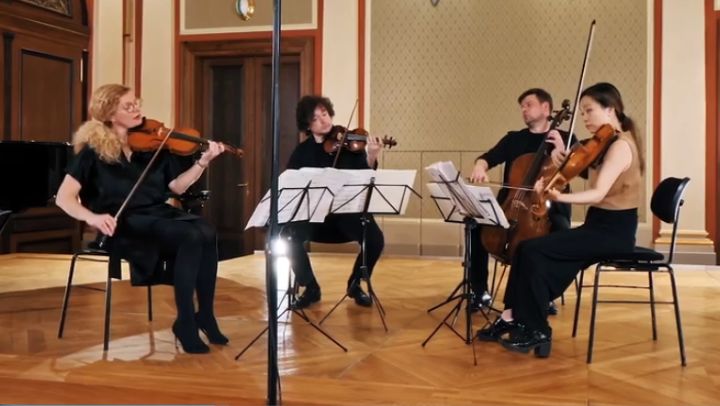
Veronika Jarůšková-first violin, Marek Zweibel-second violin, Peter Jarůšek-violoncello and Luosha Fang-viola. (video frame detail: Spivey Hall/OCL)
Certainly the individual members are great musicians – my preference would definitely go to the violist – but a string quartet, besides being the nicest prison of the world, requires far more than being able to play the notes together. It should involve a world of shared passions, capacity of “breathing” together and a complete control of dynamics. Well, it’s all there, but not to an extent to be better than so many other quartets of the past. The body language shows an irritating indifference towards what they play and this paired with certain scholastic rhythmic solutions certainly do not give the listener an impression of a really special event.
The second part of the concert pianist Boris Giltburg joined the quartet. The level of technical sound image, until now quite acceptable and surely more than professional, unfortunately placed the pianist far too distant in the overall picture, overshadowed by the too present sound of the strings. Mr. Giltburg was breathtaking right from his entry notes. He seems someone who cares about the music he plays and delivered the real highlight of this concert. The only problem I had with his playing was the choice of a Fazioli piano which might have given him the advantage of a softer sound compared to a Steinway, but also in the same moment deprived him of all the brilliance so necessary in this music which only a Steinway can deliver.
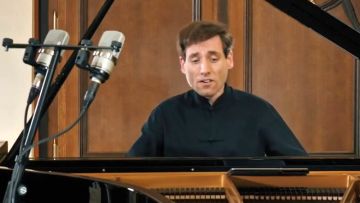
Pianist Boris Giltburg (video frame detail: Spivey Hall/OCL)
During the 45 minutes of Brahms’ Quintet it was possible to observe a curious phenomenon where Mr. Giltburg with his genuine exuberance slowly drew in the rest of the musicians to more enthusiastic participation; on the other hand, there was the presence of a lessened attention to intonation, producing sometimes really unlucky results between the strings.
The slow movement, a real gem of finesse and grace, once again would deserve more differentiation in dynamics so that the following movement, played surely in a breathtaking tempo, is on the brink of becoming a satire. Here should definitely be the place to note the capacity of a world class ensemble. If we want to stay in Prague only there were quite a few of them – like the Stamitz Quartet or the Wind Quintet of the National Theatre, to name only two – to create the overall impression without the use of so much aggressiveness nowadays sold as passion.
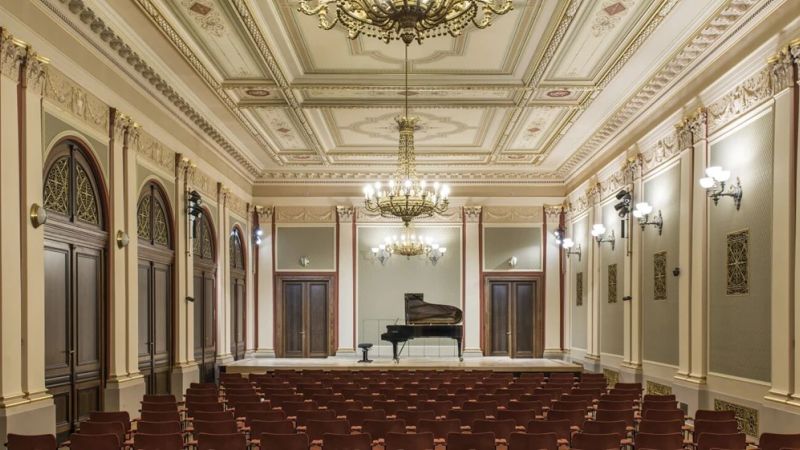
Suk Hall in the Rudolfinum, Prague (credit: Petra Hajska)
The final movement unfortunately started again with rhythmical imprecision. Maybe the public today is too spoiled with the perfection of a CD, where a good sound engineer supplies the exactness, but here it is a so-called live performance. The video images of the lovely and well-known venue in Prague and the detailed video mix was on top level.
In the final overall picture, the Pavel Haas Quartet has certainly great potential to grow, especially if they manage to stay in a fixed formation for some years in order to develop a sort of common spirit. ■
RECENT POSTS
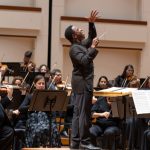 Kwamé Ryan and the Charlotte Symphony, with violinist Gil Shaham, deliver a rapturous all-Tchaikovsky evening • 11 Oct 2025
Kwamé Ryan and the Charlotte Symphony, with violinist Gil Shaham, deliver a rapturous all-Tchaikovsky evening • 11 Oct 2025 Equilibrium and elegance: Dover Quartet and de Guise-Langlois find balance in Haydn, Jalbert, and Mozart • 10 Oct 2025
Equilibrium and elegance: Dover Quartet and de Guise-Langlois find balance in Haydn, Jalbert, and Mozart • 10 Oct 2025



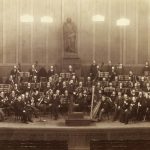
.png)